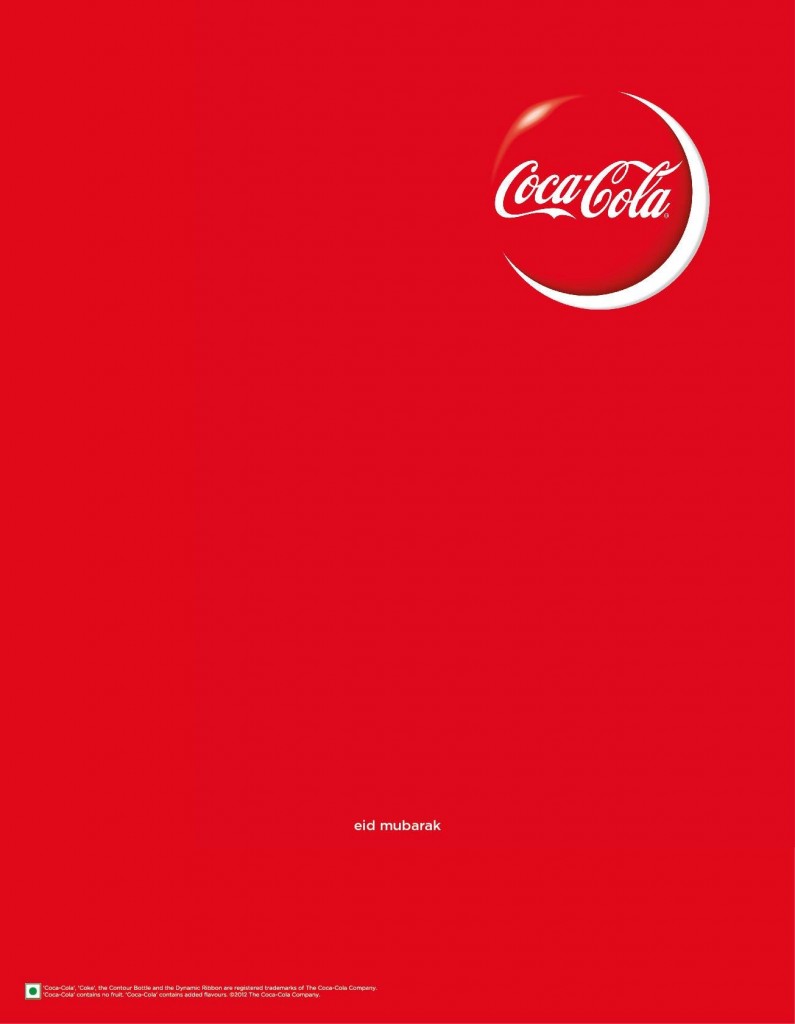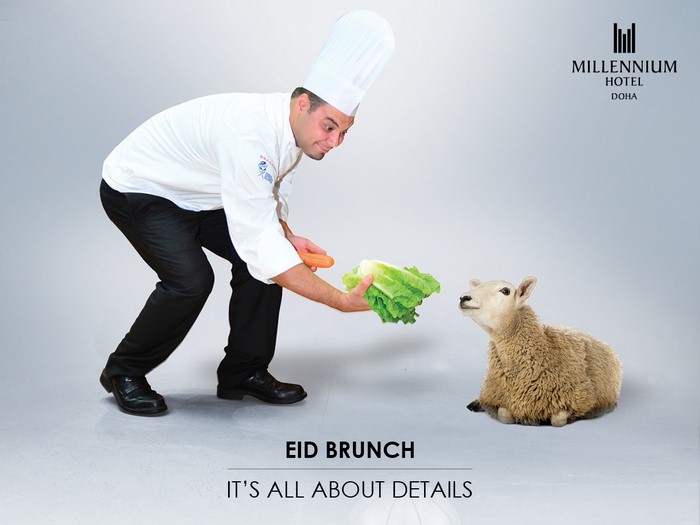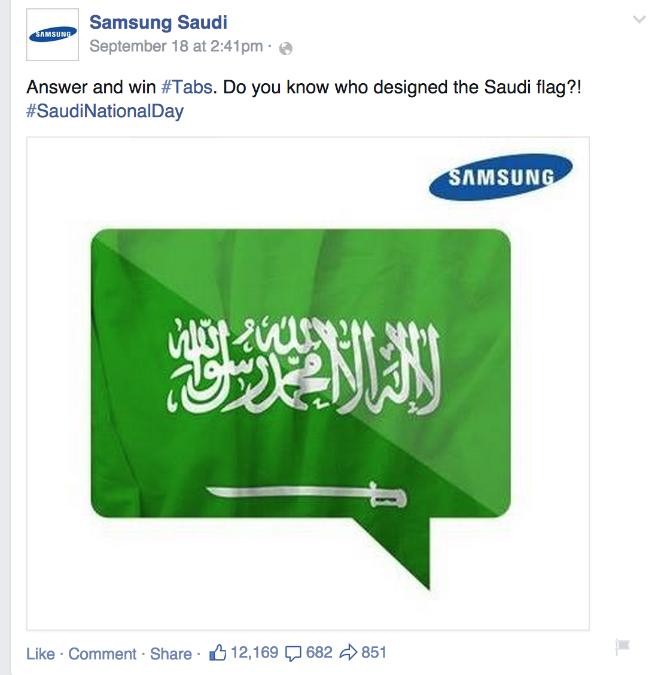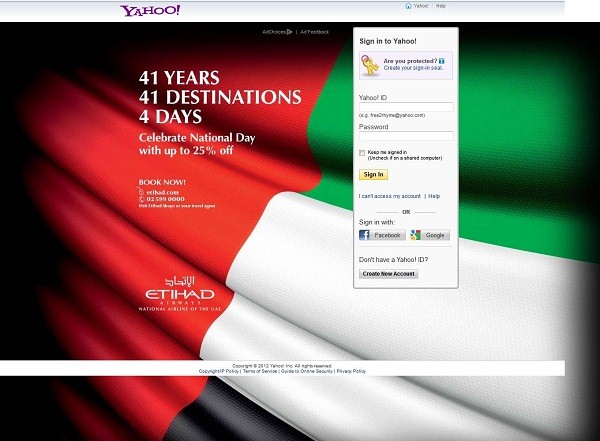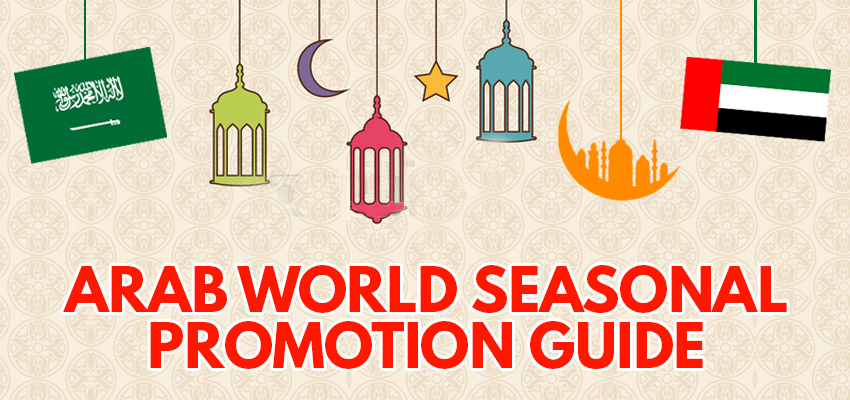
If you’re looking to take your marketing in the Arab world to the next level this post will provide and in-depth look into seasonal marketing opportunities in the Arab world. Feel free to use this post to help you plan out your seasonal promotions to Arab consumers in countries across the in Middle East.
Why seasonal promotions may be the key to your marketing success
Despite the abundance of seasonal marketing in major markets around the world like in the US and Europe, we’ve found that there are few resources about opportunities for seasonal promotions in the Arab world. To add to this we’ve found that few companies in the region are making use of these opportunities with the exception of Ramadan or Eid marketing campaigns. However, we’ve found that in many cases Arabs respond quite well to promotions. Given this effectiveness and the fact that so few companies are taking advantage of these opportunities you may find that taking advantage of seasonal marketing opportunities gives you an advantage over your competition in the region.
In the past decade, companies have started to realise the potential in the region to commercialise religious celebrations, as has been the case with holidays like Christmas in the west for quite some time. The guide that follows seeks to explain these holidays and why each is an advantageous, if not entirely necessary, opportunity for companies to connect with Middle Eastern consumers. Both religious and national holidays are included, as marketing focused on nationalistic holidays in the Middle East is relatively untouched currently, and is an additional occasion to expand brand recognition in each market.
Holiday and Seasonal Marketing in the Middle East
It is important to consider that that while each country celebrates these many of the religious holidays, traditions vary from country to country. When designing a promotion or advertising campaign around an Islamic holiday, these differences are significant and should be taken into consideration. Furthermore, it has been proven ineffective in the Middle East to have a religious tone in your advertising messaging; more successful marketing strategies and campaigns integrate cultural and traditional subtleties without over-utilizing religious imagery. For example, Pepsi runs very successful yearly Ramadan marketing campaigns that focus on incorporating Egyptian celebrities with a reminder that the season is a time for family gatherings, which are completed with Pepsi products. These campaigns are able to capitalize on the spirit of the season while respecting cultural and religious traditions but are not overly religious.
When designing a campaign that targets these holidays, it is extremely important to exercise caution with religious imagery. Campaigns that overly caricaturize religion are potentially offensive. While it’s important to practice cultural and religious sensitivity, there are many marketing campaigns that successfully target seasonal holidays and celebrations, such as this advertisement from Coca Cola, or this advertisement from Gulf Bank for Ramadan.
Below is a list of Islamic holidays, their religious significance, and their dates for the 2016 year. As with any new marketing campaign, it’s smart to hire someone with a more in depth knowledge of the region and religious principles before launching a campaign based on these holidays. Additionally, because the dates for these holidays change yearly, it’s important to consider any seasonal factors that might influence sales, as some years will see a greater increase in business in correspondence with the seasons, and others will benefit from targeted holiday marketing.
A Note on the Dates of Muslim Holidays and the Islamic Calendar:
The Islamic calendar has twelve months based on the lunar cycle starting in the year 622 AD, but unlike the Gregorian calendar, it has only 354 days. Due to the significance of the relationship between lunar movements and Quranic teachings, this calendar determines the dates of Islamic holidays, including the birthday of the Prophet Muhammad, Eid al-Fitr, Eid al-Adha, Ramadan, Isra’ and Mi’raj, and the Islamic New Year. Every country in the MENA region observes these six Muslim holidays, in addition to other holidays specified for each country. Each new month of the calendar begins with the first lunar crescent seen after a new moon. Therefore, the months are not always precisely predictable, and are subject to change.
The Islamic holidays listed have different Western dates each year since the Islamic calendar is roughly eleven days shorter. The dates listed for the holidays below are only those predicted for the 2016 year.
Ramadan (7 June to 5 July)
Ramadan is celebrated during the 9th month of the Islamic calendar, and during this time Muslims around the world fast in reverence of the first revelation of the Quran to the Prophet Mohammed. As one of the five pillars of Islam, it is considered obligatory for all adult Muslims, with limited exceptions. The month is considered a time of reflection, prayer, and charity, but also of family and togetherness. After sunset, huge meals are served with entire families to break the fast, and most activity outdoors follows the iftar meal.
During the month of Ramadan, many people located in the Middle East shift their schedules so they’re socializing later in the day; working hours are reduced across the MENA region, and many shops and cafes open after dark and into the early hours of the morning. Much of the online activity shifts from daytime into the evening hours, meaning marketing campaigns should be adjusted accordingly. It’s important to remember that while Ramadan presents many valuable seasonal marketing and promotional campaign opportunities, the behaviours of Middle Eastern consumers also shift with their altered work and social schedules. Marketing in the Middle East during this time is particularly valuable for food, clothing, and electronics retailers, though many companies with smart advertising campaigns see an uptake in business. A good example of Ramadan marketing is this campaign from food giant Almarai in Saudi Arabia, which capitalizes on the spirit of the holiday with a heartfelt message:
For more information on marketing during Ramadan checkout our Complete Guide to Ramadan Marketing.
Eid al-Fitr (7 July)
One of the most important Islamic celebrations, the Eid al-Fitr festival marks the end of Ramadan. In the days leading up to the festival, families donate food to the poor as a way to ensure everyone is capable of celebrating this important holiday. After a month of fasting, Muslims gather for a special salat (prayer), and then celebrate with decorations, treats, gifts, and time with friends and family.
For most countries in the Arab region, the Eid festival is celebrated with a three-day government holiday to allow time for traditional charity and family focused activities. In Saudi Arabia, both Eid celebrations are a ten-day government holiday. This holiday presents many opportunities for a variety of marketing campaigns targeting Arab and Muslim consumers. In the days leading up to the holiday, many people are busy buying new clothing for the celebrations, and as gifts. Additionally, many destinations, hotels, and airlines have started advertising promotions for special Eid offers, like discounted rates, or special feasts.
Hajj (9 September- 12 September)
Hajj is a five-day pilgrimage that begins on the eighth day of the final month in the Islamic calendar. Another mandatory pillar of Islam, it is a requirement for all Muslims capable of making the journey. Hajj represents a time of peace, reflection, and unity for the greater Muslim ummah (community).
Each year, millions of Muslims travel to Mecca from all over the world to perform Hajj. This means not only a huge increase in travel related spending to Saudi Arabia, but also in many goods and services available in Mecca. Reports suggest the impact of Hajj on the Saudi Arabian economy represents roughly seven percent of GDP. Though a religious experience, many marketers have been able to capitalize on the yearly cropping of fresh consumers during Hajj, particularly for those companies that sell products that can be taken home as gifts, including perfume, electronics, and small appliances. Below is an add run by a Saudi Telecom company during the holiday.
Eid al-Adha (11 September)
Celebrated globally by Muslims, with most countries in the Middle East declaring it a three-day holiday, Eid al-Adha is the second of the most important Muslim holidays. It marks the end of Hajj, and honours Ibrahim’s submission to God and his willingness to sacrifice his son to God’s command. Like Eid al-Fitr, the Greater Eid requires Muslims to share food and money so that all may participate in the festivities. During the celebration, a sheep or goat is typically sacrificed, and families gather to eat and exchange gifts and well wishes. This festival is another huge opportunity for retailers to run seasonal promotions in the Middle East, as spending on gifts for family and friends spikes during the holiday.
Islamic New Year (2 October)
Unlike the New Year celebrated around the world on January 1 each year, the Islamic New Year is a more quiet and personal affair. Generally not a large celebration, it falls on the first day of the month of Muharram and marks the beginning of the new calendar that is used to determine all the dates of the Islamic holidays that liturgical year. Though not an official holiday like Eid, it is celebrated across the Arab region with prayer, reflection, and a retelling of the hijra (flight) of the Prophet Mohammad from Mecca to Medina in 622 CE.
Prophet Mohammad’s Birthday (11 December)
The birthday of the Prophet Mohammad is celebrated by Sunni Muslims on the 12th day of the third month in the Islamic calendar, and by Shi’a Muslims on the 17th day of the same month. It is a contested holiday, with ultraconservative sects of Islam rejecting its celebration. For this reason, Saudi Arabia and Qatar are the only countries in the Middle East and Northern Africa region to not recognize the holiday. However, in the rest of the Arab world, reading the story of the mawlid (birth of the Prophet), sharing food and sweets, decorating homes and streets, and gathering the family often commemorates the day, but tradition varies by country. Depending on which countries you are targeting this could be a good time for a seasonal promotion but you should be careful to consult local experts to make sure it is appropriate for the target countries.
Other Holidays
Across the Middle East, many countries celebrate Christian holidays in addition to the Islamic holidays mentioned above. Most notably, Easter and Christmas are celebrated in countries with sizable Christian minorities, including Lebanon, Jordan, Egypt, and Syria. It is important to note that the Orthodox and Coptic calendars differ from the Western Christian calendars, and while Easter is celebrated on a different date every year, the Orthodox and Coptic Easter is normally different from the Western Easter. Marketing and advertising campaigns during these seasonal holidays are very popular with both local and expat populations, with many retailers running successful promotions that capitalize on these celebrations.
New Year’s Day (Western Calendar)
Additionally, Western traditions such as the celebration of the New Year’s Day are celebrated in many Arab countries. The most notable exception is Saudi Arabia, which follows the Islamic calendar officially, unlike all other Gulf countries. With this exclusion, a variety of different industries witness successful marketing opportunities in the Middle East surrounding the New Year, similarly to those companies that see increased sales in the West.
Labour Day
Labour Day is another holiday celebrated in the Middle Eastern region, with the exception of most Gulf countries (Saudi Arabia, Qatar, Kuwait, Emirates, and Oman) as well as Libya and Syria. In the countries where it is celebrated, workers enjoy a break from the office. However, whereas Labour Day is celebrated on the first of September in the US and Canada, MENA countries observe the holiday on the first of May.
Country-Specific Holidays
While the majority of the marketing and advertising in the Middle East centres around religious holidays, there are many opportunities for promotions around nationalistic holidays in each country. For example, in Saudi Arabia, Samsung ran a promotion for Saudi National Day to engage consumers in KSA.
In the UAE, Etihad Airways did a promotion to celebrate Emirati National Day:
These are just a few examples of potential marketing opportunities surrounding nationalistic holidays. Similarly to those holidays in Western countries, like the Fourth of July in the US, or Canada Day, these holidays present a huge marketing opportunity to play upon citizen’s patriotism and connect with consumers, while simultaneously achieving brand awareness. Almost all advertisements we’ve seen in this genre either have and image of the countries flag or some other iconic nationalistic symbol.
The following is a list of the holidays celebrated in each country in across the Arab region, excluding the Muslim holidays described above, New Year’s Day, and Labour Day.
Saudi Arabia
September 23: Saudi National Day/ Unification of the Kingdom
Qatar
February 9: National Sports Day
March 6: March Bank Holiday
December 18: Qatari National Day
Bahrain
October 11-12: Ashura
December 16-17: Bahrain National Day
Kuwait
February 25: Kuwait National Day
February 26: Kuwait Liberation Day
February 27: Public Holiday
The Prophet’s Ascension (5 May 2016)
UAE
The Prophet’s Ascension (May 5 2016)
November 30: Marty’s Day
Dec 2: UAE National Day
Oman
The Prophet’s Ascension (5 May 2016)
July 23: Renaissance Day
November 18: Oman National Day
Yemen
May 22: Unity Day
September 26: September Revolution Day
October 14: Liberation Day
November 30: Independence Day
Jordan
May 25: Independence Day
December 25: Christmas Day
Lebanon
January 6: Armenian Orthodox Christmas
February 9: St. Maroun’s Day
February 14: Rafik Hariri Memorial Day
March 25: Annunciation Day
Good Friday (25 March 2016)
Easter Sunday (29 March 2016)
Orthodox Good Friday (29 April 2016)
Orthodox Easter Sunday (1 May 2016)
May 1: Martyrs’ Day
May 3: Labour Day Holiday (2016)
May 8: Resistance and Liberation Day
August 15: Assumption of the Virgin Mary
October 11: Ashura
November 22: Independence Day
December 25: Christmas Day
Syria
January 1: New Year’s Day
March 8: Revolution Day
April 17: Independence Day
Orthodox Easter Sunday (1 May 2016)
May 6: Martyrs’ Day
October 6: October Liberation Day
December 25: Christmas Day
Iraq
January 6: Armed Forces Day
April 9: Liberation Day
July 14: Republic Day
October 11: Ashura
December 25: Christmas Day
Palestine
The Prophet’s Ascension (5 May 2016)
November 15: Independence Day
Egypt
January 7: Eastern/Coptic Christmas
January 25: 25th of January Revolution (Police Day)
April 25: Sinai Liberation Day
Coptic Easter (1 May 2016)
May 2: Sham El Nessim
July 23: Revolution Day
October 6: Armed Forces Day
Libya
February 17: February 17th Revolution
September 16: Martyr’s Day
October 23: Liberation Day
December 24: Independence Day
Algeria
July 5: Independence Day
October 11: Ashura
November 1: Anniversary of the Revolution
Tunisia
January 14: Revolution and Youth Day
March 20: Independence Day
April 9: Martyrs’ Day
July 25: Republic Day
August 13: Women’s Day
October 15: Evacuation Day
Morocco
January 11: Proclamation of Independence
July 30: Enthronement
August 14: Allegiance Day
August 20: Revolution Day
August 21: Youth Day
November 6: Green March Day
November 18: Independence Day
In summary if you are looking to get better results from your marketing efforts across the Middle East seasonal promotions are a great opportunity to achieve your objectives.
Contact us today if you need help with your seasonal promotions in the Arab World. Whether you’re looking for consulting on running more effective campaigns or for us to run your campaigns for you we’d love to help.
Originally written by: Leah Wilson
Updated by
Jordan Boshers
Jordan Boshers is the Chief Digital Strategist at IstiZada, a digital agency that helps companies market to Arabs. He has 12+ years of experience running successful digital marketing campaigns in the Arab world. His insights into Arabic SEO helped him grow previously unknown websites to dominate Arabic niches on Google including growing one site from 0 to more than 2.5 million users monthly. Jordan has consulted for hundreds of companies including helping corporations like Amazon, Berlitz, and Exxon Mobil with their Arabic digital marketing. Learn more here or on LinkedIn.
View all posts by Jordan Boshers